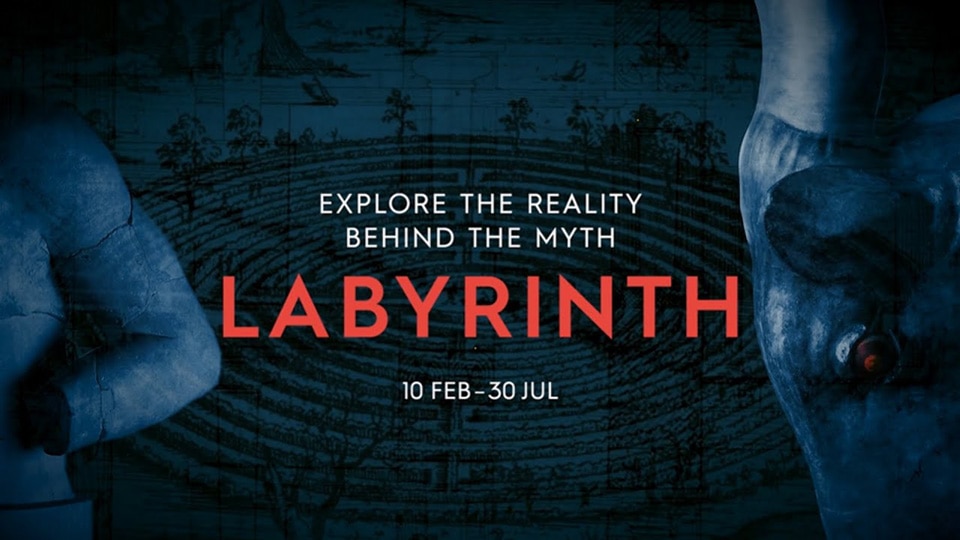Visit the island of Crete in Assassin’s Creed Odyssey and you’ll encounter the ancient (even by Kassandra’s standards) Knossos, one of the oldest documented Greek settlements. Excavated by Sir Arthur Evans in the early 20th century, Knossos was home to the Minoans, a civilization of Greeks that came and went more than 1,000 years before the events of Odyssey. Venture underneath the ancient palace as Kassandra or Alexios, and you’ll uncover the fabled Labyrinth of King Minos, where he hid the mythical Minotaur. While this might be where Odyssey begins to divert from history, the Labyrinth and Minotaur, like most myths, is rooted in reality. In fact, the myth is the subject of the current exhibition at the Ashmolean Museum at Oxford, Labyrinth: Knossos, Myth & Reality.
![[UN] [AC] Ashmolean Museum - IMG 1](http://staticctf.ubisoft.com/J3yJr34U2pZ2Ieem48Dwy9uqj5PNUQTn/7D2BxItQHlf4dgmqPeqzJC/1ca8c15e07cadf686c136463cce4910c/AOCD_Exhibit_960x540.jpg)
The exhibition is on display from now until July 30 and includes more than 100 objects that have never before been shown outside of Greece. In an immersive area in the exhibit, scenes from Assassin’s Creed Odyssey will be projected, showing off Ubisoft’s interpretation of the palace at Knossos and featuring behind-the-scenes details from developers and historians about how Ubisoft Quebec built the in-game environment using historical data and Evans’ own archive.
“When I first saw the reconstruction, it gave me the thrill of being transported back in time, and I wanted visitors to experience that too,” said Dr. Andrew Shapland, Sir Arthur Evans curator of Bronze Age and Classical Greece at the Ashmolean Museum, University of Oxford. “I am also fascinated by how the details in Assassin’s Creed Odyssey bring to life some of the ideas of Sir Arthur Evans. He was responsible for the first reconstruction of Knossos in concrete, based on his excavations there.”
![[UN] [AC] Ashmolean Museum - IMG 2](http://staticctf.ubisoft.com/J3yJr34U2pZ2Ieem48Dwy9uqj5PNUQTn/1LIYzF45oJtMC1CYKus0nC/db10bfa517ace4024b28022cc83a3511/AOCD_960x540.jpg)
The exhibit features a behind-the-scenes video from the development team at Ubisoft Quebec detailing the research conducted and inspiration used for their recreation of Knossos. “Ubisoft is in contact with many museums all around the world,” says Romain Fascialé, strategic alliances project manager at Ubisoft. “This is an important way for us to contribute to culture and education using our games’ content.”
This isn’t the first time Assassin’s Creed has been used in an exhibition about history. For more, check out how Assassin’s Creed Partnered with the British Library for an Alexander the Great Exhibition.



